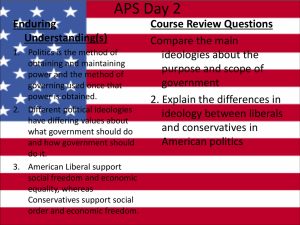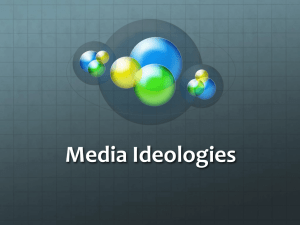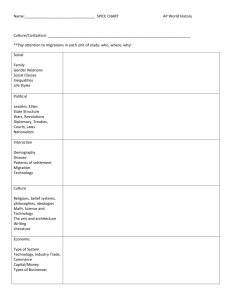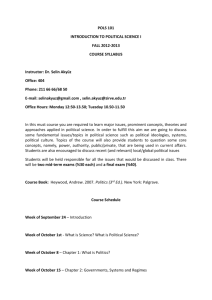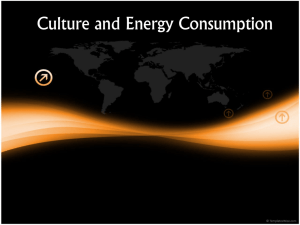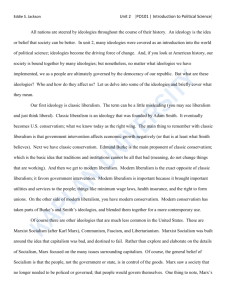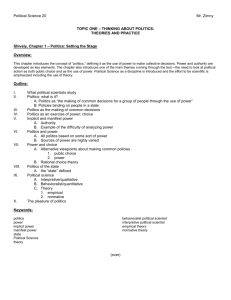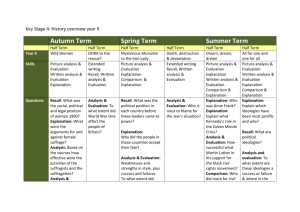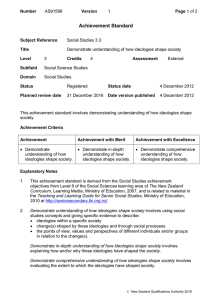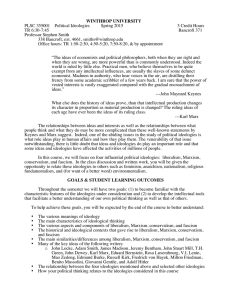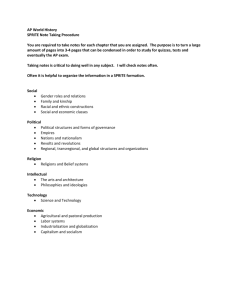Political Ideologies
advertisement
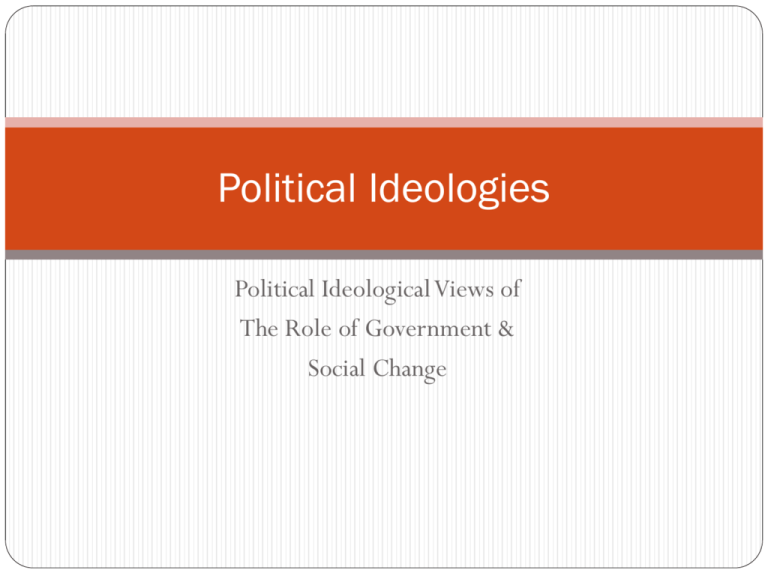
Political Ideologies Political Ideological Views of The Role of Government & Social Change Defining Political Ideologies Political Ideologies – sets of political values held by individuals regarding the basic goals of government and politics. Traditional Ideological Spectrum This political identification no longer accurately/completely describes various political positions. Ex.) Both Joseph Stalin & Gandhi would be considered on this spectrum to be ‘left/liberal’ because they agree with a strong(er) government and collective social programming. However are they the same politically or ideologically? NO !! Updated Ideological Spectrum Political Compass Version Accounts for beliefs related to: 1. 2. Role of Government (Economics) Social Change Political Ideologies Role of Government 1.) Liberalism • Emphasis on individual political & economic freedom • Maximize freedom for all people – speech, religion, association • Citizens have the right to disagree with government/leaders John Locke Thomas Malthus Adam Smith Thomas Jefferson Conservative Ideology Conservatism is not so much a philosophy as an attitude, a constant force, performing a timeless function in the development of a free society, and corresponding to a deep and permanent requirement of human nature itself. Political mood or movement aimed at preserving older or traditional values, economic systems, and laws. Edmund Burke the British Conservative. Political Ideologies Role of Government 2.) Communism • Value equality over freedom • Rejects idea that personal freedom will ensure prosperity • State ‘takeover’ will eliminate inequalities & exploitation • Individual liberties must yield to the needs of society/state Mao Zedong Vladimir Lenin Ho Chi Minh Joseph Stalin Political Ideologies Role of Government 3.) Socialism • Value equality State = strong role in regulating economy • State = provide social benefits • Value freedom • Private Ownership • Free Market Principles • Karl Marx Hugo Chavez Political Ideologies Role of Government 4.) Fascism • Devalue individual freedoms • Reject the value of equality • Accept inferiority/superiority • State has the right to mold society & economy Adolf Hitler Benito Mussolini Political Ideologies Social Change (1) Radicalism • Rapid, dramatic changes need to be made to the existing society • Current system cannot be saved; must be overturned; replaced Russian Revolution (1917) is seen as a Radical-led revolution of the Russian government and society. Political Ideologies Social Change (2) Liberalism • Supports Reform & gradual change • Political/Economic systems are not broken/lost, just need to be repaired/improved When applying the story of the Tortoise & the Hare to social change, Liberalism would be similar to the Tortoise. Political Ideologies Social Change (3) Conservatism • Less supportive of change than radicalism and liberalism • The state is very important for law & order • See change as disruptive and dangerous Political Ideologies Social Change (4) Reactionary • They oppose both revolution & reform • Also find the status quo unacceptable • Want to turn back the clock • Re-institute earlier political, social, economic institutions that once existed

